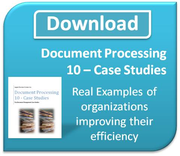One of the challenges that many businesses face is finding enough resources to support charitable organizations in their communities that are doing exceptional things to improve the locality. Every business faces the need to make decisions of how much they can give and which organization to give to. 
I have recently been able to participate in a very interesting and exciting way that a major Canadian organization used its surplus IT equipment to support a large group of charities in our local community by working with a couple of facilitating groups.
Here's the scenario:
This large company has a standard practice of purchasing their computers and other IT equipment. They have adopted a refresh program which sees a block of computer assets coming up for renewal every year on a three year refresh. They have adopted this schedule to avoid down time and high maintenance cost on their devices. As a publicly traded company they have to be careful how they manage their assets at the end of their useful term.
Working with the IT department in this company a charitable organization I work with takes possession of the surplus equipment (a block of laptops this round) and brings to our local community for distribution for reuse in various charitable organizations who have need of this type of equipment.
One of the things that makes this process successful is we work with another charitable group in town who have built up the expertise to refurbish surplus computer equipment and to distribute it to needy organizations in town. This work is done as part of a retraining program they operate thus building even more leverage of good work out of the transactions.
They check over each device, reload the operating system to make sure it is functioning properly, (the company we get the devices from does this as well so the end result is a double check), and they load a copy of Microsoft Office on each device. They are able to access special charitable licensed software through an agreement that they have with Microsoft and this ensures that each computer is ready to do productive work once in the hands of the end user.
Our organization makes contact with local charities who may have need of the equipment and then allocates the machines to each one that responds trying to match their needs as well as we can. Usually we are able to meet at least 75 to 80 percent of the requests and have solid, functional computers delivered into the hands of groups who could not afford to buy them new.
We track the placements of the devices by serial number and then report back to our supply partner with the names and types of uses the devices are being put to. This meets their needs to responsibly account for the residual use of the surplus equipment they are disposing and helps to ensure that all of the devices are going to end using charities, not into the used computer market.
How you could do something similar
This program works because the equipment being disposed of is of high quality and still have excellent potential for continued use. It is fairly new and therefore has the ability to function with current levels of software and for daily use in a real working environment. In addition there are several organizations involved in the process which make sure that the equipment ends up in a location which meets the supplying company's disposal standards.
Take a look at your IT resources next time you start a refresh program. Are there devices which may not meet your current needs but which could be refurbished to provide utility to some one else. Be cautious here and ensure that the refurb costs and potential life are good enough to be worth the effort. If you have used the devices for 5 or more years, you could be offering to hand off a problem to someone who has little ability to support it rather than providing a benefit.
On the other hand often the equipment you have may be perfectly alright for someone to use for word processing, spreadsheet work and some internet access.
Look for a partner that could help you with the disposal and route it to working charities. Most communities will have one somewhere if you look hard enough.
The program we have worked with has seen computers support home work programs for inner city schools, office tools for volunteer driven community gardens, support to a wide range of charities each meeting demands in the community and as mentioned the ability for trainees to use the equipment to learn new skills for potential employment.
A win win scenario
Leveraging your residual investment from surplus IT assets can be a useful way to support your community while not placing a substantial burden upon your cash flow or profits. Of course the work and community support that the charities you help is the added bonus which is invaluable and makes the effort of finding a solution for disposal of working surplus equipment worth the extra effort. Take a look in your community to see if you can find a partner that can help.




